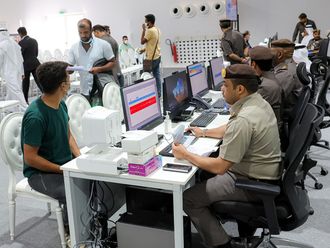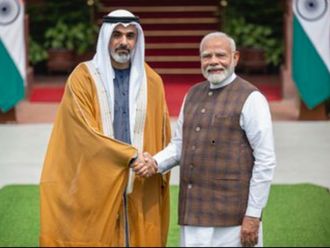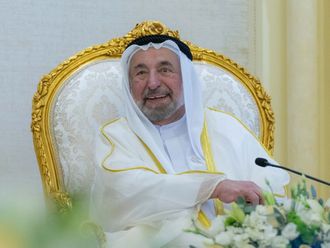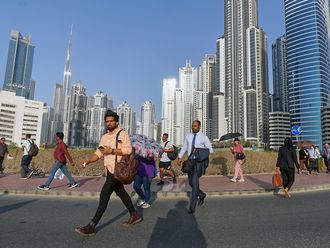_resources1_16a30b309eb_medium.jpg)
Dubai: A true path to Palestinian self-determination is irreplaceable, hence an immediate ceasefire in Gaza and ending cycle of violence in the region, is a priority, said Dr Anwar Mohammed Gargash, Diplomatic Advisor to the UAE President.
“No reasonable voice can deny the urgency of an immediate ceasefire in Gaza, ending the cycle of violence, regional escalation, and the destructive logic of aggression and retaliation, while acknowledging the failure of policies that have delayed the establishment of an independent Palestinian state,” Dr Gargash said in a post on his X account.
He added: “There is no alternative to a genuine path that guarantees the right of the Palestinian people to self-determination and breaks the cycle of instability in the region.”
At a meeting of the Organisation of Islamic Cooperation (OIC) in Jeddah, Waleed Al Khereiji, Saudi Arabia’s Deputy Minister of Foreign Affairs, condemned the Israeli attacks on civilians.
Al Khereiji also expressed the Kingdom’s deep concern over the escalating violence perpetrated by the Israeli army, which has resulted in a significant number of civilian casualties in the Gaza Strip and the West Bank.
More than 40,000 Palestinians, including 39,699 in Gaza and 617 in the West Bank, were killed since Gaza-Israel war began on October 7.
In an interview with CNN Jordan’s foreign minister Ayman Safadi said: “The only path forward is to bring about an immediate ceasefire that will help deescalate the regional situation and will save the region from the abyss of further conflict.” Safadi made a rare trip to Iran over the weekend as part of the coordinated efforts by the West and Arab states to lower tensions.
In Washington, National Security Council spokesman John Kirby said Israel and Hamas are still close to a ceasefire deal.
“We are as close as we think we have ever been” to a deal for a Gaza ceasefire and the release of hostages held by Hamas, Kirby told reporters.
Intense diplomacy
“We’re involved in some pretty intense diplomacy here across the region,” Kirby said.
He added that he was “not going to talk about intelligence assessments” of when, or whether, Iran and its Lebanese ally Hezbollah might attack.
Amid a flurry of diplomatic activity, Iran’s president told his French counterpart Emmanuel Macron on Wednesday the US and Europe must urge Israel to accept a ceasefire in Gaza to reduce tensions in the Middle East.
“If the US and Western countries really want to prevent war and insecurity in the region, they should convince this regime to stop the genocide and attacks in Gaza and accept a ceasefire,” Pezeshkian told Macron, a statement on Iran’s official government website said.
Dangerous situation
In the CNN interview, Safadi said: “We are in a very, very dangerous situation in the region following the assassination of the head of the political bureau of Hamas, Ismail Haniyeh. Tensions have risen, obviously. What we in Jordan are saying is that the region cannot afford further conflict, further war, further destruction, and we must stop this escalation.”
“Everybody has to realise the situation is extremely dangerous. The threat of the region being dragged into a regional war is real. We do want this escalation to stop. And we are 100% convinced that the only – the first step – towards that deescalation is stopping the aggression on Gaza.”
On what he believes Iran’s position is at this point, he said: “They believe that they’ve been done a great wrong and they believe they have the right to respond. So what we are trying to do is, again, create the conditions in which everybody will see value in de-escalating.”
At the meeting OIC meeting he said: “The danger is real. I think our meeting today will not be able to bring about a ceasefire. I think Iran and Palestine called for this emergency meeting to try and rally Arab, Muslim position behind condemning the assassination of Haniyeh and to urge for more effective work by the international community to end the aggression on Gaza.”
“Now we have an opportunity at real de-escalation and we should move towards that. So the talks on the ceasefire are obviously complicated – particularly after the assassination of the chief negotiator from the Hamas side – which we believe is a violation of international law and a reckless move that we condemned as a crime.”











